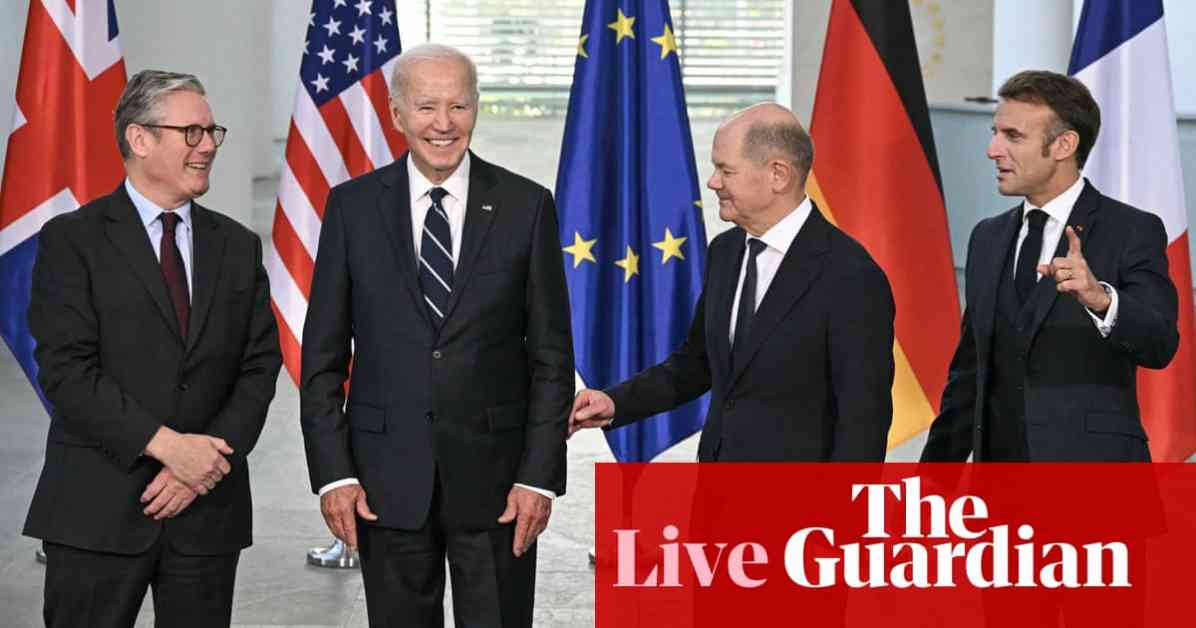British Prime Minister Keir Starmer visited Germany for important discussions on the ongoing conflicts in Ukraine and the Middle East. He was welcomed by German Chancellor Olaf Scholz as he arrived in Berlin. The meeting, known as the “Quad” meeting, included leaders from the US, France, and Germany. The main topics of discussion were the war in Ukraine and the escalating conflict in the Middle East.
The White House confirmed that US President Joe Biden would meet with Starmer and French President Emmanuel Macron to talk about the future steps regarding Ukraine and the rapidly evolving situations in the Middle East. The recent killing of Hamas leader Yahya Sinwar by Israel was seen as a significant development in the region.
Starmer expressed the UK’s stance on the situation, stating that the UK would not mourn the death of Sinwar, the mastermind behind Hamas’ attacks. He reiterated the call for an immediate ceasefire in the Middle East to prevent further escalation of violence.
Meanwhile, concerns have been raised about potential deep cuts to research funding following the government’s budget announcement. Leading research and industry groups have warned against short-term cuts that could undermine economic growth and lead to job losses and setbacks in the sector. The Department for Science, Innovation and Technology is facing the possibility of absorbing additional costs, which could result in significant negative consequences for UK research and development.
On a somber note, the body of former Scottish First Minister Alex Salmond was flown back to Scotland after his sudden death from a heart attack. Plans for a private family funeral and a public memorial service are being arranged. The coffin was draped in a Saltire, symbolizing the deep loss felt by many in Scotland.
In other news, Tory leadership hopeful Robert Jenrick described the small boat crossings in the English Channel as a “national emergency” following the tragic death of a baby during a recent crossing. He criticized the handling of the situation and called for stronger measures to address the crisis.
Amidst these developments, former Archbishop of Canterbury George Carey has urged Church of England bishops in the House of Lords to support a parliamentary bill on assisted dying. This has sparked a debate within the Church about the ethical considerations surrounding end-of-life care.
As the UK faces economic challenges and international crises, it is essential for leaders to come together to address these issues and work towards sustainable solutions. The discussions in Germany and the various debates and developments highlight the complex and interconnected nature of global politics and the need for thoughtful and strategic decision-making.












